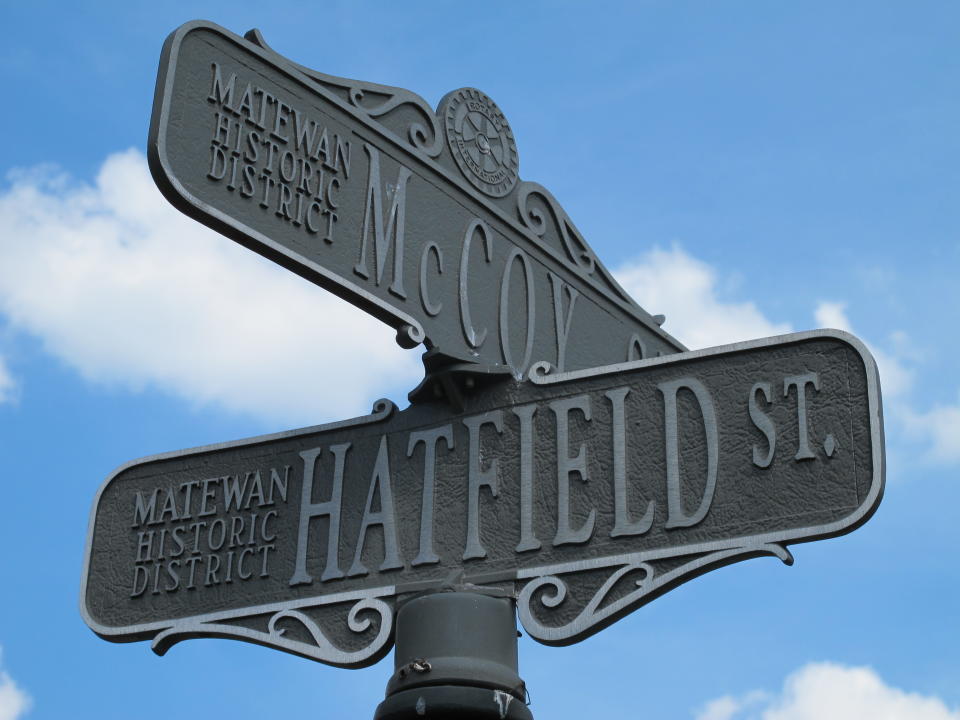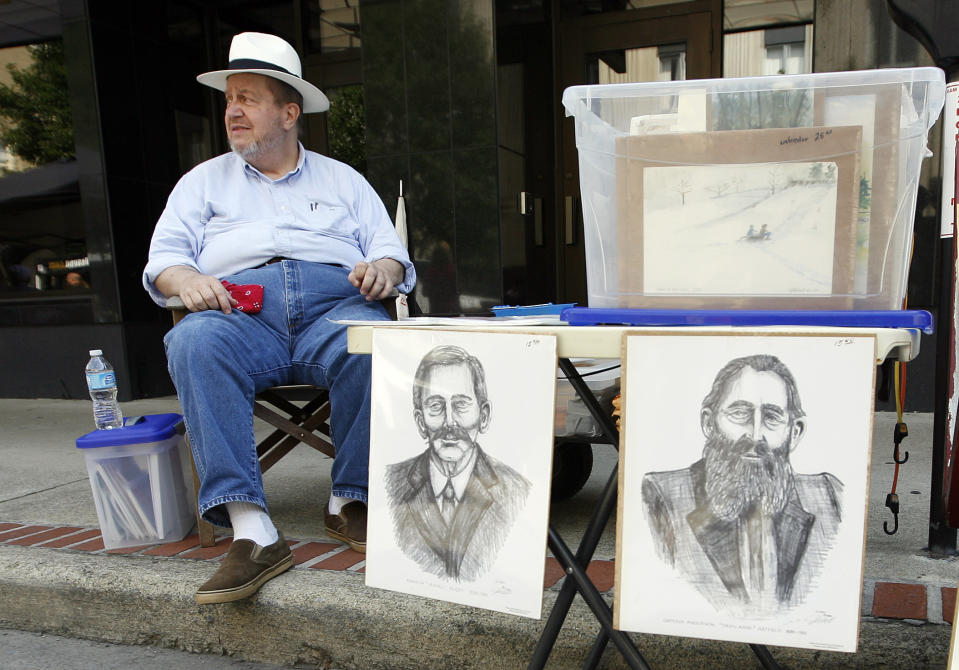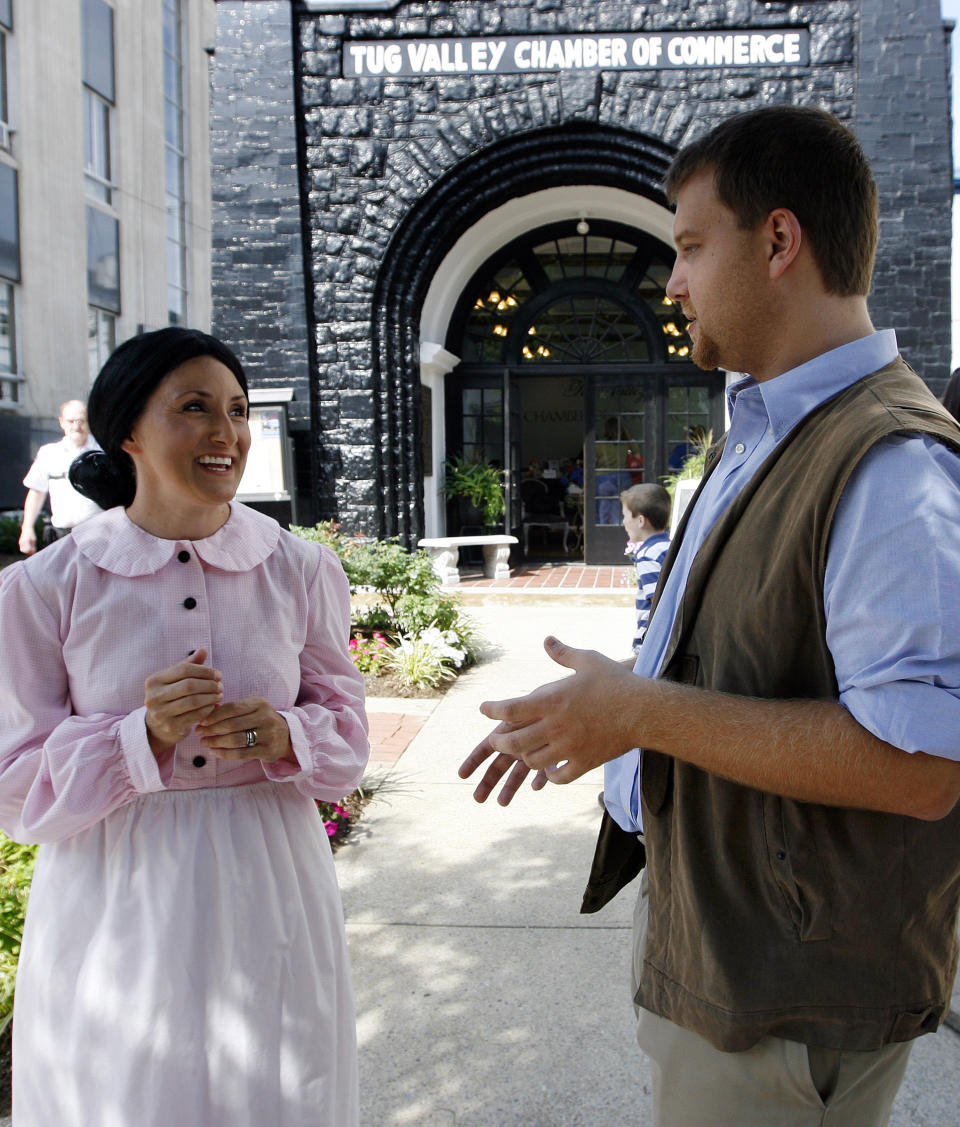US fascinated with 'Hatfields and McCoys' feud
MATEWAN, West Virginia (AP) — More than a century after the last shots were fired in America's most famous feud, the Hatfields and McCoys mingle peacefully in the mountains they call home, their names forever linked, but now in the pursuit of commerce.
The national fascination with the families' bloody past may help push this rough patch of Appalachia, traditionally one of the poorest places in the country, toward a more prosperous future.
A three-night miniseries about the feud, starring Kevin Costner and Bill Paxton, set basic cable viewing records and sparked renewed interest in the Hatfields and the McCoys, who waged their own cross-border war between West Virginia and Kentucky. The History Channel drama drew more than 13.9 million viewers the first night. The finale did even better, with 14.3 million.
Television producers are now looking for descendants of the families to take part in a reality show.
Officials in both states are hoping to transform a century-old spasm of violence into a modern tourism brand. They offer bus tours of the crucial sites in the feuding that claimed at least a dozen lives by 1888 and catapulted both families into the American vernacular, becoming shorthand to describe bitter rivals.
West Virginia Gov. Earl Ray Tomblin said tourism officials in southern West Virginia have been inundated with calls, and websites are getting hundreds of hits.
On the Kentucky side, tours of feud sites are filled within hours after being scheduled, said Pike County tourism director Tony Tackett. His office's website had more than 300,000 hits in two weeks; it normally averaged about 5,500 hits a month.
"We're just going to roll with it ... hold on tight and market it as well as we can," Tackett said.
The feud officially ended June 14, 2003, when about 60 descendants of the two families gathered in Pikeville, Kentucky, to sign a truce during the fourth festival.
Many believe the feud was rooted in the Civil War, but the bitterness was perpetuated by disputes over timber rights and even a pig.
Lisa Alther, author of the book "Blood Feud" about the warring families, said other feuds happened in the Southern Appalachians during that era, but none captured the public's imagination like the Hatfields and McCoys, due partly to its web of compelling plot lines.
"It's partly a culture of honor, where insults can lead to fights and nobody would step down," she said. "There was too much alcohol for sure, too many guns, possibly too little formal education so people hadn't learned how to discuss rather than fight."
From an ancestral McCoy home in Kentucky where the family had gathered for the reunion, Elliott McCoy said the hatred and distrust between the families died out long ago.
Descendants on both sides share a pride in their heritage, though they disavow the violent streak.
"It's knowing that you come from a long line of people that didn't make a lot of right decisions at times, but they thought it was right in their mind, so that's what they did," said Michael Maurice Hatfield. "Now I've got a short fuse myself, and I understand where it comes from."
___
On the Web:
Pike County Tourism, Convention & Visitors Bureau: http://www.tourpikecounty.com
Tug Valley Chamber of Commerce: http://www.tugvalleychamber.com/
___
Associated Press writer Lawrence Messina in Charleston, West Virginia, contributed to this report.





